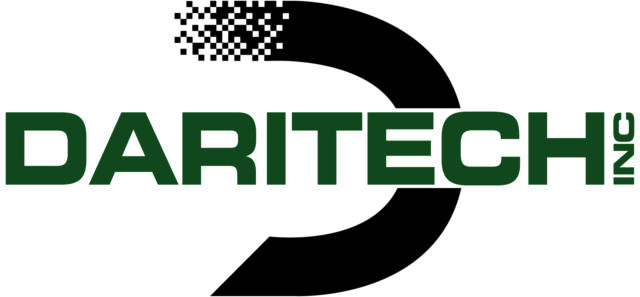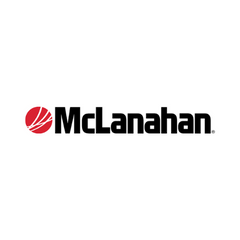Renewable natural gas (RNG) production from dairy manure is an opportunity for farms to obtain an additional income while also participating in the reduction of greenhouse gases (GHG), moving the dairy farm toward sustainability.
Multiple developers are offering to assist with capital, technology, and management. However, a number of factors should be considered before signing a contract with a developer.
When evaluating RNG development, producers should do their due diligence. The producer should be sure to consider: Who will own and operate the anaerobic digester and biogas cleanup? How will the capital and operating costs be financed? How will the dairy be compensated? What is the impact on herd management and manure management? How long will the agreement be and how will it end? What are permitting and tax implications?
The farm will be entering a long-term partnership with another party, and it is important to understand all the impacts. Questions useful to starting the due diligence process are listed in the sidebar.
Equipment ownership and location
The additional technology added to the farm may include a digester or digesters, a gas cleanup system, and a mechanism to move the gas offsite including compressors, and either truck loading or direct pipeline injection. The producer should be sure to investigate the digester developer and the technology. Things to think about when planning this project include:
- Location of the new equipment
- Site access agreement for initial investigations
- Ground lease agreement for the land used
- License agreement if needed
- What happens to the land before construction, during construction, and after construction?
- Transferability: if the farm is sold or if the developer sells
- Insurance and indemnification: who is covered and for what?
Operation
The operation of the anaerobic digester is essential to the success of an RNG project, as it is the central component of gas production. Ensure that this piece of technology will be designed correctly and work well for your farm’s bedding, feeding, and manure collection systems. When it comes to adding an anaerobic digester to a farm, operation will depend on many factors. When the digester is proposed, ensure you are agreeable with the design, location, and designed operational strategies. What additional labor will need to be provided by the farm to operate the system? Digesters often require a knowledgeable operator for optimal function.
Some components of digester operation that are often overlooked include:
- Who supplies and pays for the utilities required to operate the digester?
- Will combined heat and power be used to heat the digester in winter months?
- Where will the interconnection point be to the energy transmission system?
- What happens if there is a shortfall in manure supply or other biological events? Including:
- Reseeding
- Upset conditions
- Severe or unusual weather conditions
- Herd infection or disease
Financing and compensation
The financial components surrounding the digester can be complex. Farms want to ensure that they will be coming out net positive in the agreement. Financial components that need to be agreed on and understood include who receives the carbon credits, who receives the tax credits, and if the developer has financing and funding already in place (from whom, what amount, and what are the conditions). Financial plans are negotiated to ensure financial ability to perform and available capital for the project.
One of the draws to RNG for dairy farms is the diversified and additional compensation available to the producer. Possible financial compensation can be found in a signing payment/bonus, progress payments at development stages, lease payments, and commercial operation compensation. Commercial operation compensation can come in the form of a profit share, a price per energy unit, compensation per cow, tax credits, and carbon credits. It is important to understand the agreement and terms exactly. For example, if compensation is agreed on a per-cow basis, understand if that is based on individual animal production or an average.
Effect on dairy animal operations and waste management
The RNG development company focus will be on Carbon Intensity (CI) score, total solids (TS), volatile solids (VS) and other aspects affecting energy production abilities which may impact how the farm is expected to operate. It is important to inquire and understand what changes will and will not be needed to your current animal husbandry practices. Animal rations, bedding, housing, herd size, replacements, stocking density, health management, and water use all are factors in manure’s energy production abilities and therefore should be discussed before signing on to an RNG project.
Changes may also be expected to the farm’s methods of waste management. Flush water, manure dilution, bypass, manure collection, solid separation, and other pre-digestion treatment and handling may need to be changed to meet your contract’s expected RNG production. Then there are considerations that come with the digester. What is the nutrient form and composition of digestate? How long will manure be in digestion? Is post-digestion separation and treatment possible? How will the temperature and outflow of digestion be controlled?
Further down the line it is important to know who will pay for changes and upgrades, repairs, maintenance, manure transport costs, and the required frequency of digester cleaning. Finally, it is important to consider what changes will be required to your farm’s nutrient management plan, field application practice, and how this may impact any existing third-party exports.
Permitting considerations
Project permitting can be a long and uncertain process. Each state and county will have its own permitting expectations including CAFO, zoning variances, air and water permits. Making an operational change such as adding RNG to your farm has the potential to trigger a site compliance review of your current CAFO permit. Therefore, be sure that you do not agree to a number of cows in the contract that exceeds your permit requirements. This can also present an opportunity for CAFO expansion or bring your permit into compliance. Some permits may need continual reporting.
When it comes to the siting and construction of the facilities, considerations should be put into:
- Will variances be needed for building heights or other aspects?
- What neighborhood meetings, county meetings and other public hearings with comments will be required?
- Will there be any water or watershed permitting requirements?
- Will there be any air quality issues from emissions from engines, flares, boilers and/or methane leaks?
Term, termination and taxes
Reading through the contract, there are specific areas that should be outlined. First, the terms of the agreement, and options of renewal or extension terms while understanding at whose initiatives they are set. When the project does come to termination, what happens to the facilities, cleanup, and the covering of termination costs? Discuss the assignability of interests and ensure an agreement is reached that satisfies both parties.
Taxes are the other inevitable part to consider. The first major tax consideration is the effect of property taxes; they may move from agricultural to commercial. Who will be responsible for covering the change in cost, and the likely incremental increase in taxes over the contract term? How will tax credits earned be allocated? There are likely also to be taxes on the production and sale of both the energy and any manure byproducts. Ensure that there is an understanding of which party will be responsible for these taxes.
Finally, it should be clear and understood what exit opportunities are present and how this can change over the project stages. During the long-term contract, many things can change including farm ownership, future opportunities for renewable energy, changes in policy, and changes in expertise. Ensure that the termination of the contract accounts for evaluating these changes over the contract term.
Food waste
In addition to all the above considerations, there is an opportunity to digest not only dairy manure but food waste as well. Some states have started to institute laws to divert food waste from landfills and encourage organics recycling. A great way to recycle food waste is through anaerobic digestion. It allows for not only the nutrients to be recycled, but for the emissions to be captured and converted into renewable energy as well. Bringing food waste onto a farm should only occur after considering odor, extra nutrient load, volume available in the digester, sources of reliable and predictable food scraps, possible contaminants, and the likely reduced price for RNG that comes from co-digestion.
Conclusion
Working towards carbon neutral dairy farms is a notable goal. A significant and economically viable option for this is to consider the production of RNG to offset farm methane emissions into a renewable fuel while bringing additional income to the farm. Carefully consider the relationship with the developer, as both entities need to mutually benefit.
– This article appeared in PRO-DAIRY’s The Manager in November 2021. To learn more about Cornell CALS PRO-DAIRY program, visit PRO-DAIRY Cornell CALS.
Checklist of RNG developer questions
- A successful RNG developer will be able to answer these questions and will not need to hide behind “confidentiality”.
- Who will own the digester and equipment?
- How will the project be financed?
- What will be the compensation to the farm?
- What will be the effect on the dairy operations?
- What will be the effect on the dairy manure management?
- Will there be any permitting needs and who obtains them?
- Who will operate the new enterprise? What is the expected project term?
- Who can terminate the agreement and why?
- What are the tax implications?
- How many dairy projects have they developed and how many are operating?
- What dairy farms has the digester developer already contracted with?
- How long do they need to conduct due diligence on this project before construction?
- How long will construction take?
- If significant upside occurs, how will it be shared with the dairy?
- If there is a significant downturn, how will it impact the dairy?
- Who owns the rights to develop future manure-related revenue?
- What is their source of capital, and are they open to the dairy participating?
- Can the developer arrange for you to talk independently and privately with other dairy farmers with developed projects?
- Who does the developer have a long-term contract for the sale of energy with?







